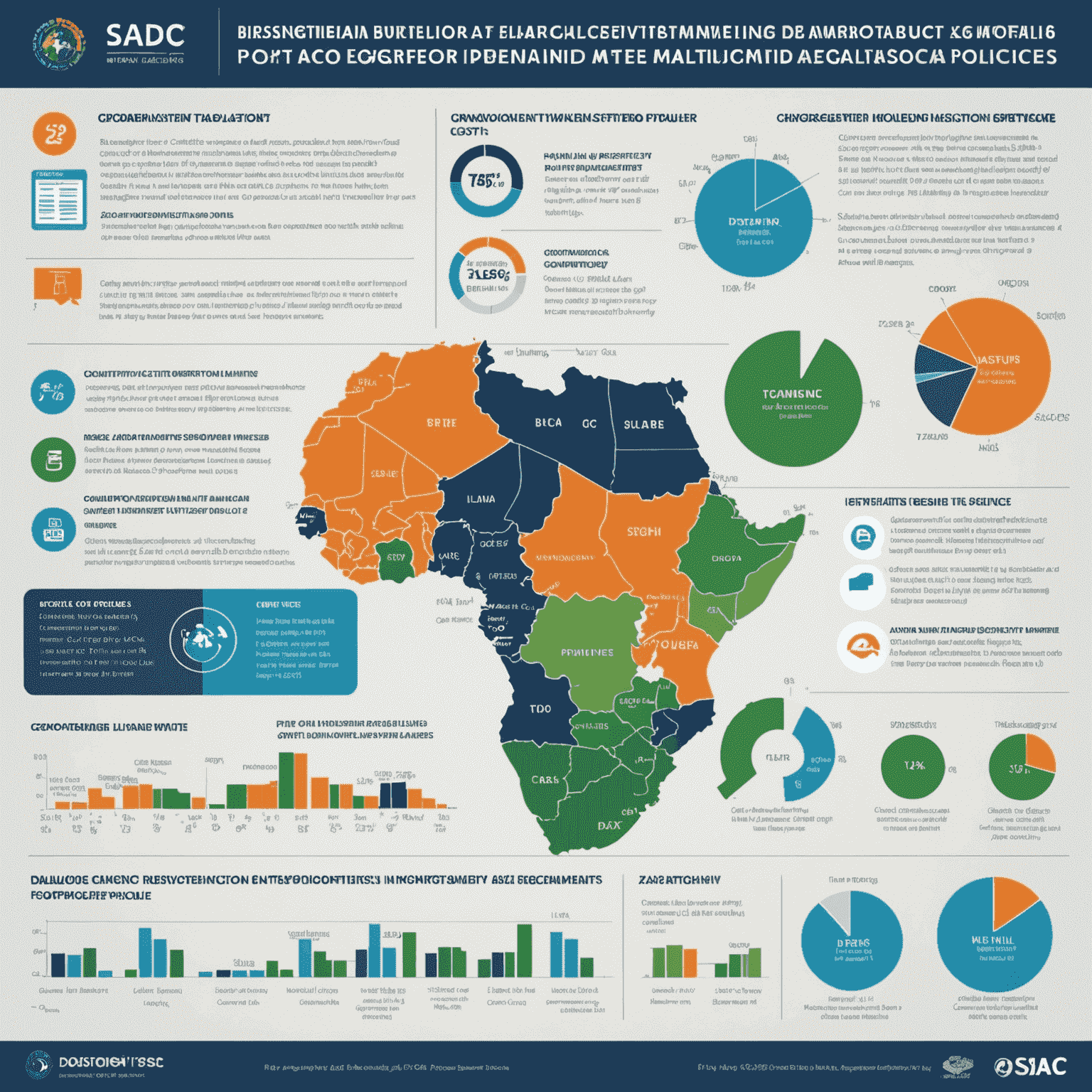Regulatory Landscape: Navigating SADC Markets

For South African businesses eyeing expansion into the Southern African Development Community (SADC) region, understanding the regulatory landscape is crucial. This comprehensive overview aims to shed light on key considerations across SADC nations.
Diverse Regulatory Environments
The SADC region, comprising 16 member states, presents a tapestry of regulatory frameworks. Each country maintains its unique set of rules and regulations, influenced by historical, economic, and political factors. As a management consulting firm, we've observed that successful market entry strategies hinge on a nuanced understanding of these variations.
Key Regulatory Considerations
- Business Registration: Processes and requirements vary significantly across SADC countries. Some nations offer streamlined online registration, while others require in-person applications and multiple approvals.
- Tax Regimes: Corporate tax rates, VAT, and other fiscal policies differ. Understanding these nuances is essential for financial planning and compliance.
- Labor Laws: Employment regulations, including minimum wage, working hours, and employee benefits, can impact operational costs and HR strategies.
- Foreign Capital Policies: Some SADC countries have restrictions on foreign ownership in certain sectors, while others offer incentives to attract international businesses.
- Cross-border Trade Regulations: Despite SADC's aim for regional integration, cross-border trade still faces various regulatory hurdles that businesses must navigate.

Leveraging Technology for Compliance
In our experience as NetSuite consultants, we've found that leveraging robust ERP systems can significantly ease the burden of regulatory compliance. NetSuite's cloud-based platform offers flexibility to adapt to various regulatory requirements, enabling businesses to:
- Maintain accurate financial records across multiple jurisdictions
- Automate tax calculations and reporting
- Ensure compliance with local accounting standards
- Streamline cross-border transactions and reporting
Strategies for Navigating SADC Regulations
Based on our extensive experience in management consulting across the SADC region, we recommend the following strategies:
- Conduct Thorough Due Diligence: Invest in comprehensive market research and regulatory analysis before entering new markets.
- Engage Local Experts: Partner with local legal and regulatory experts to navigate country-specific nuances.
- Adopt Flexible Business Models: Design your expansion strategy with flexibility to adapt to varying regulatory environments.
- Invest in Compliance Technology: Utilize advanced ERP systems like NetSuite to streamline compliance across multiple jurisdictions.
- Stay Informed: Regulatory landscapes evolve. Establish systems to stay updated on changes that may impact your business.
Conclusion
While the regulatory landscape across SADC nations presents challenges, it also offers opportunities for well-prepared South African businesses. By understanding the nuances of each market's regulatory environment and leveraging appropriate technologies and expertise, companies can navigate these complexities successfully. As both management consultants and NetSuite specialists, we're committed to guiding businesses through this intricate landscape, ensuring compliance while unlocking the vast potential of the SADC market.